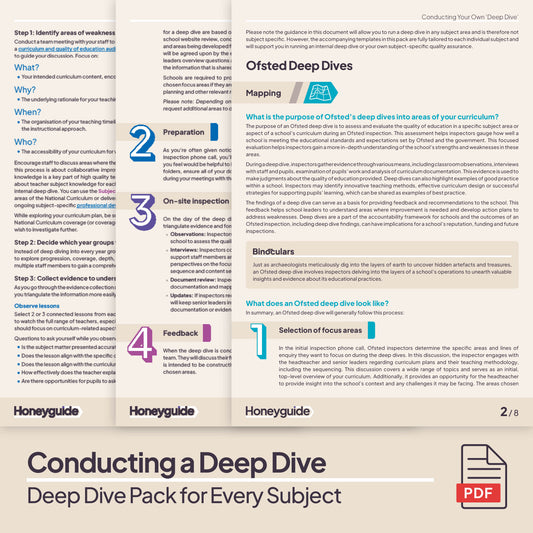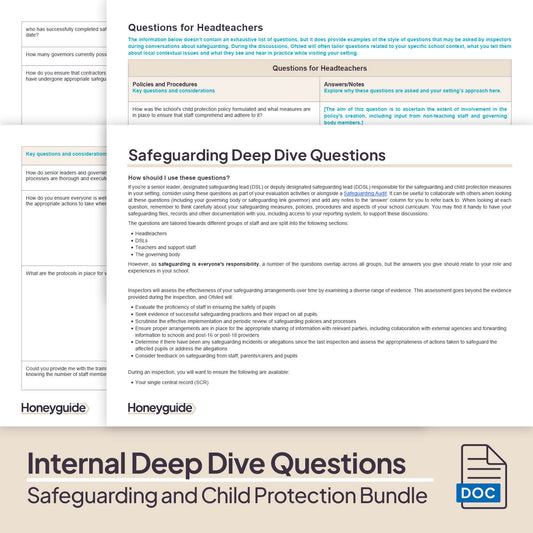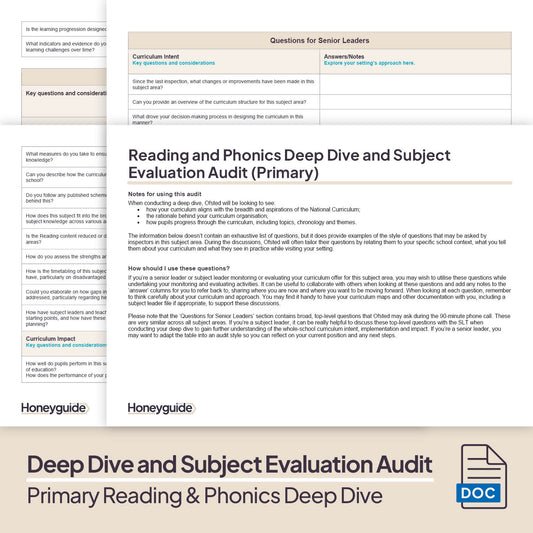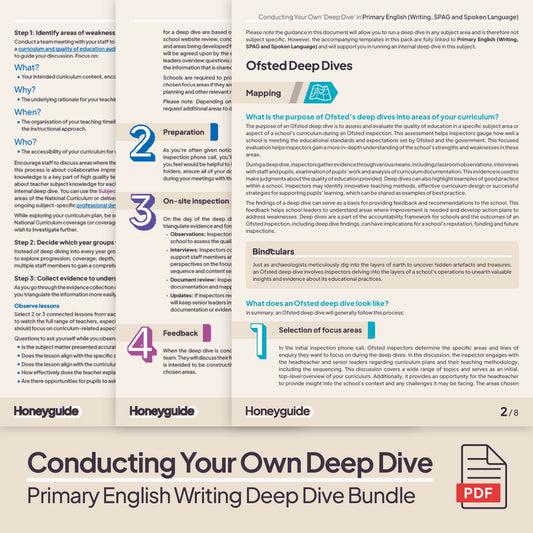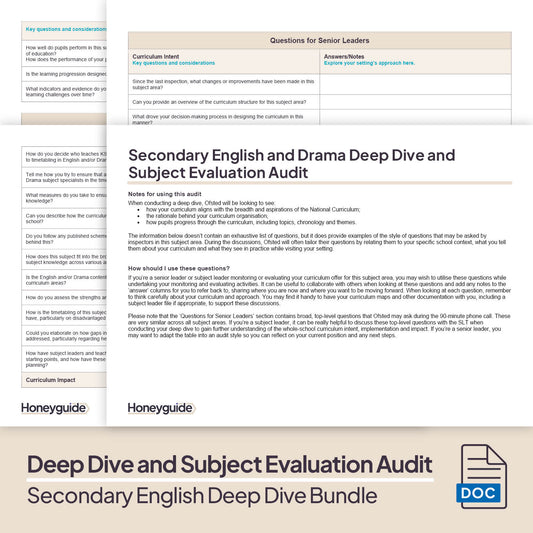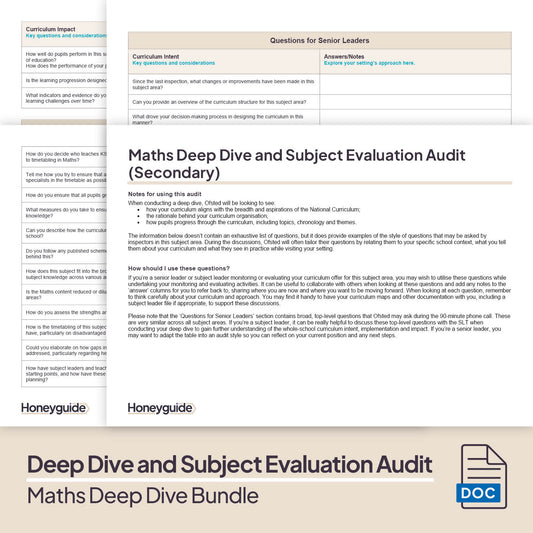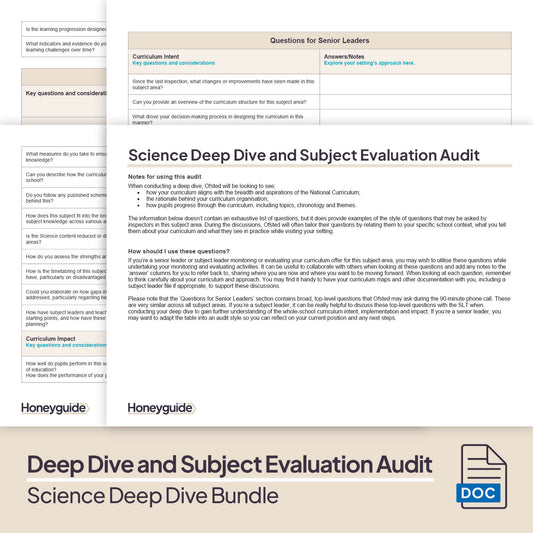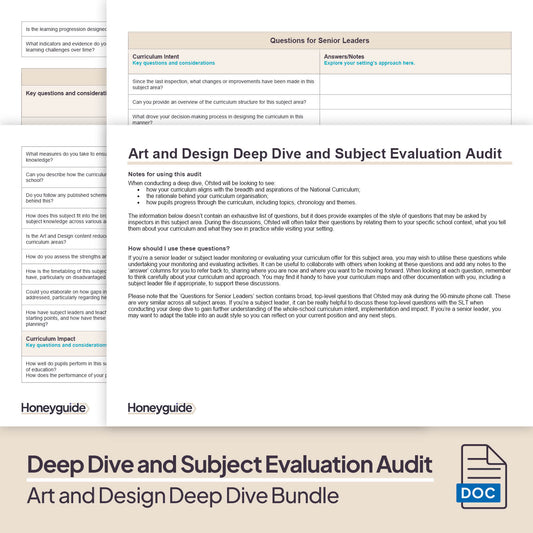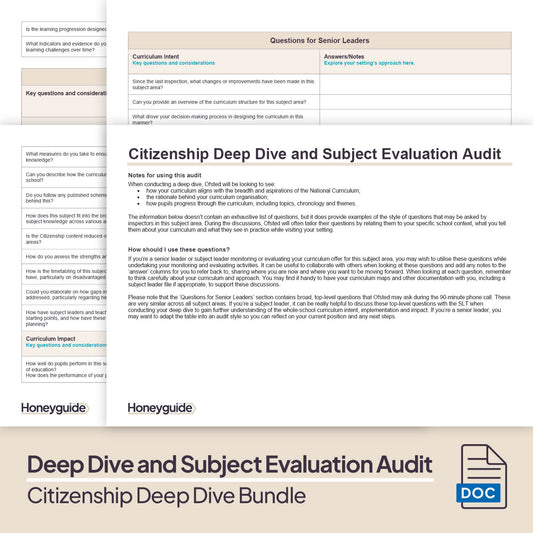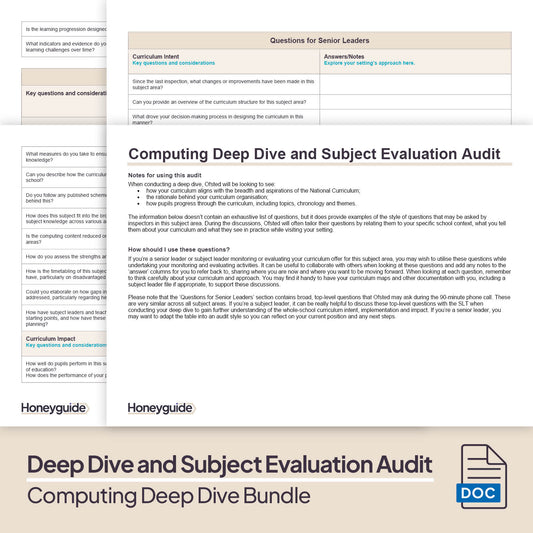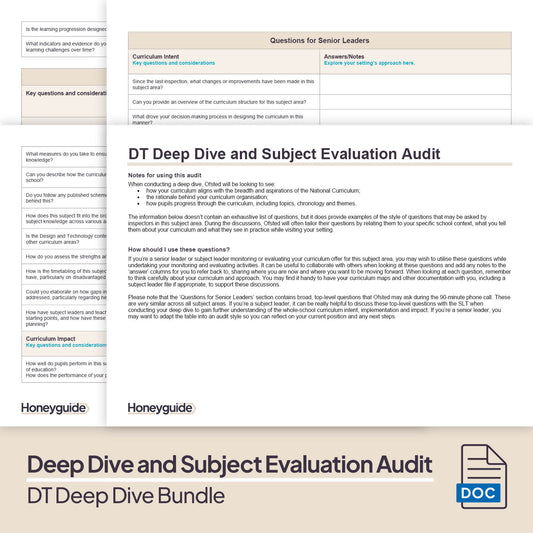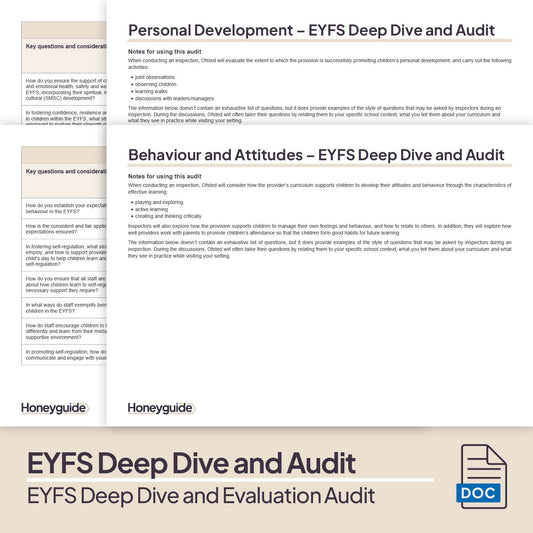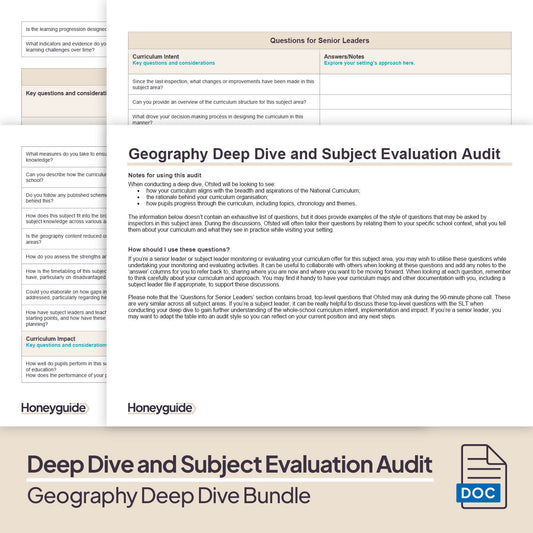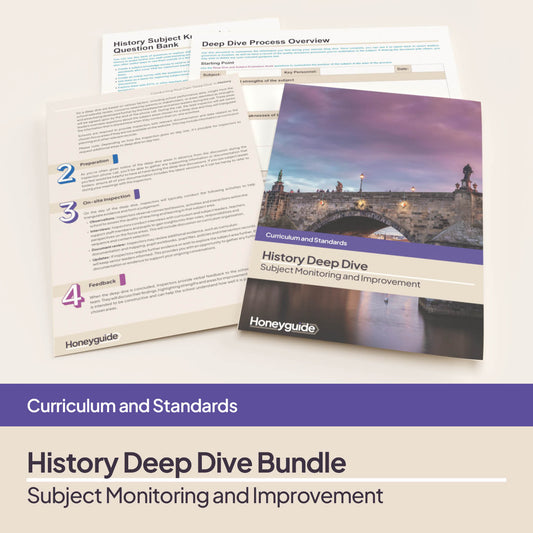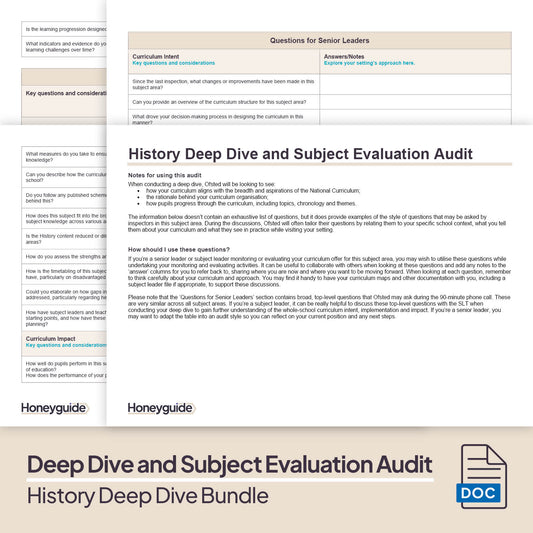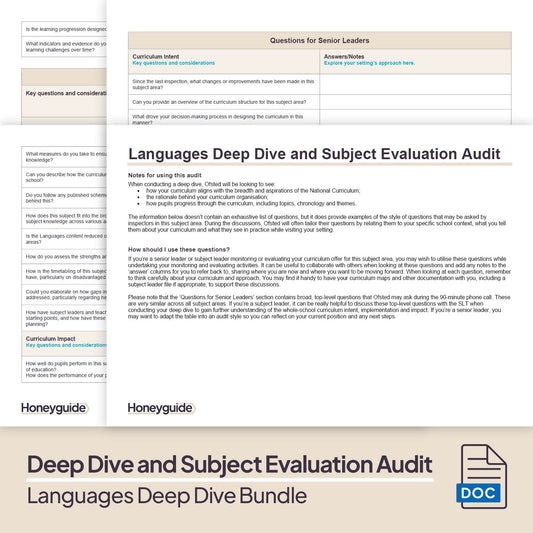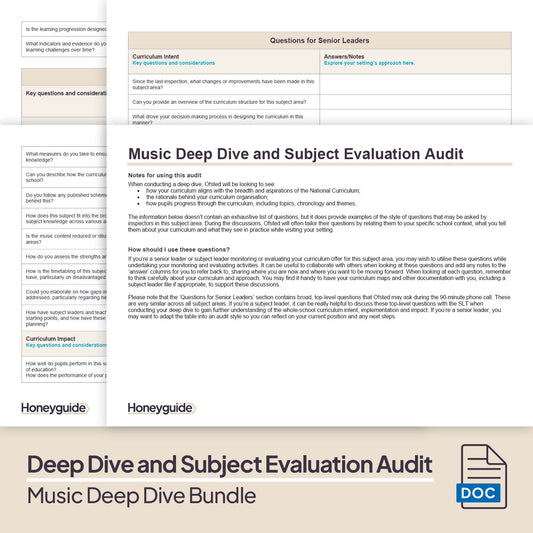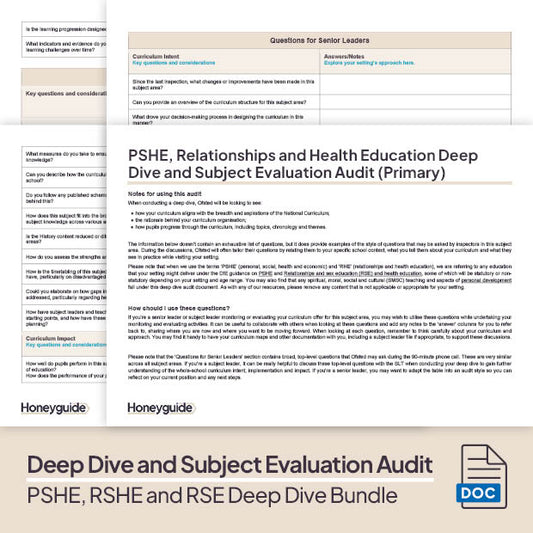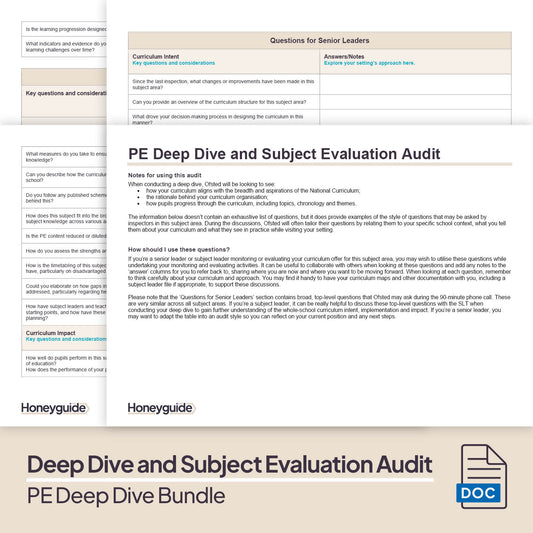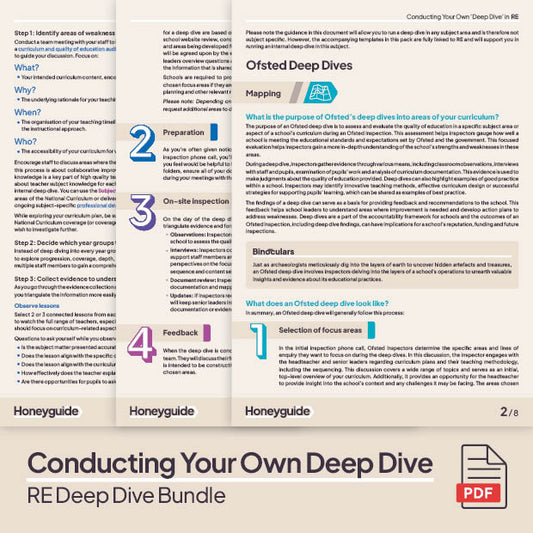Collection: Ofsted-Focused
Browse this collection of Ofsted-focused resources designed to support school leaders prepare for an Ofsted inspection and build their confidence about the inspection process.
-
Ofsted Inspection Preparation Pack
Regular price £110.00Regular priceUnit price / per -
Ofsted Phone Call Preparation Pack
Regular price £15.00Regular priceUnit price / per -
Deep Dive in Every Subject: Full Curriculum Set
Regular price £150.00Regular priceUnit price / per -
Safeguarding and Child Protection Deep Dive
Regular price £15.00Regular priceUnit price / per -
Primary English (Reading and Phonics) Deep Dive and Subject Knowledge Bundle
Regular price £15.00Regular priceUnit price / per -
Primary English (Writing, SPAG and Spoken Language) Deep Dive Bundle
Regular price £15.00Regular priceUnit price / per -
Secondary English Deep Dive and Subject Knowledge Bundle
Regular price £15.00Regular priceUnit price / per -
Maths Deep Dive and Subject Knowledge Bundle
Regular price £15.00Regular priceUnit price / per -
Science Deep Dive and Subject Knowledge Bundle
Regular price £15.00Regular priceUnit price / per -
Art and Design Deep Dive and Subject Knowledge Bundle
Regular price £15.00Regular priceUnit price / per -
Citizenship Deep Dive and Subject Knowledge Bundle
Regular price £15.00Regular priceUnit price / per -
Computing Deep Dive and Subject Knowledge Bundle
Regular price £15.00Regular priceUnit price / per -
Design and Technology Deep Dive and Subject Knowledge Bundle
Regular price £15.00Regular priceUnit price / per -
EYFS Deep Dive and Evaluation Audit Bundle
Regular price £20.00Regular priceUnit price / per -
Geography Deep Dive and Subject Knowledge Bundle
Regular price £15.00Regular priceUnit price / per -
History Deep Dive and Subject Knowledge Bundle
Regular price £15.00Regular priceUnit price / per -
Languages Deep Dive and Subject Knowledge Bundle
Regular price £15.00Regular priceUnit price / per -
Music Deep Dive and Subject Knowledge Bundle
Regular price £15.00Regular priceUnit price / per -
PSHE, RSHE and RSE Deep Dive and Subject Knowledge Bundle
Regular price £15.00Regular priceUnit price / per -
PE Deep Dive and Subject Knowledge Bundle
Regular price £15.00Regular priceUnit price / per -
RE Deep Dive and Subject Knowledge Bundle
Regular price £15.00Regular priceUnit price / per






